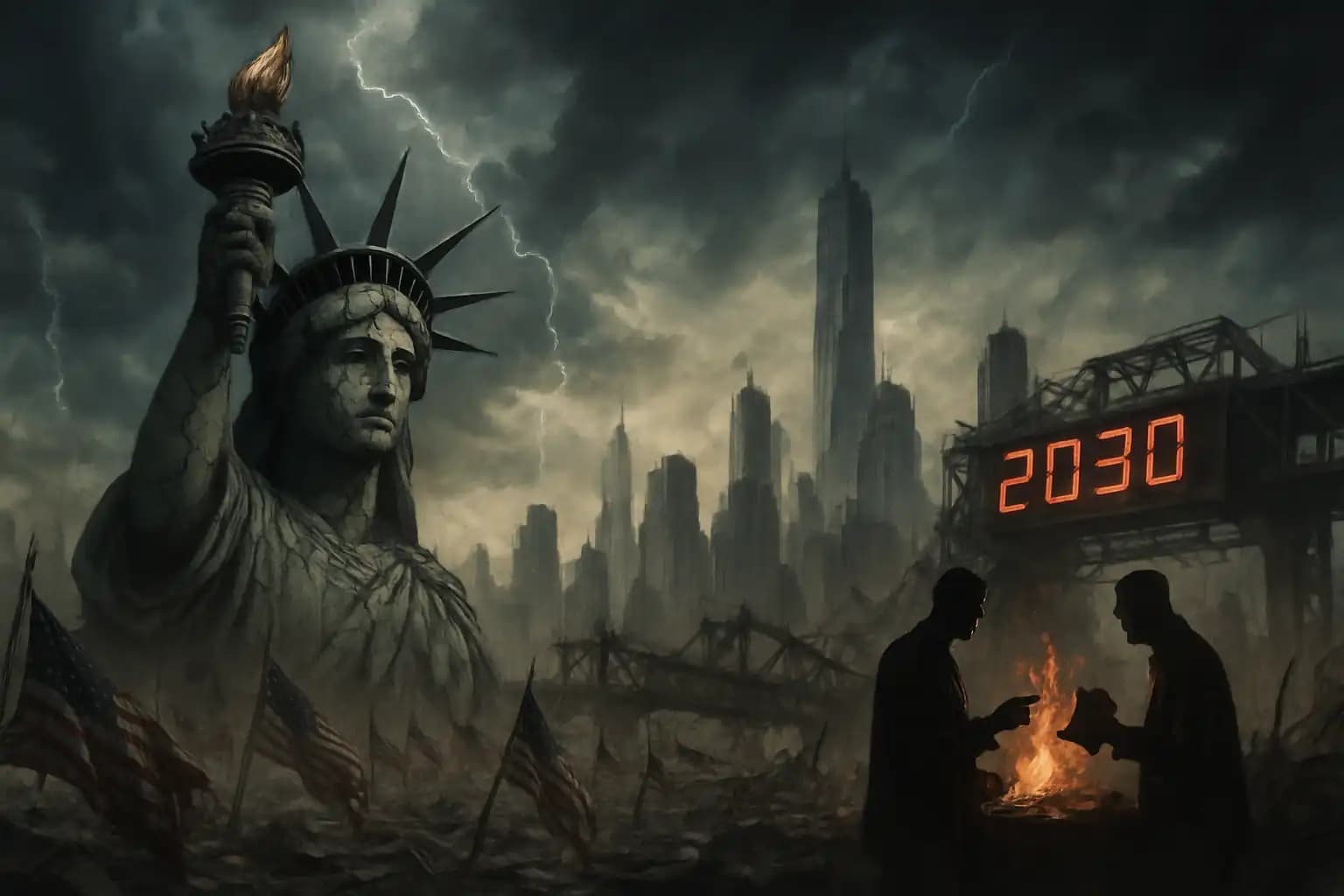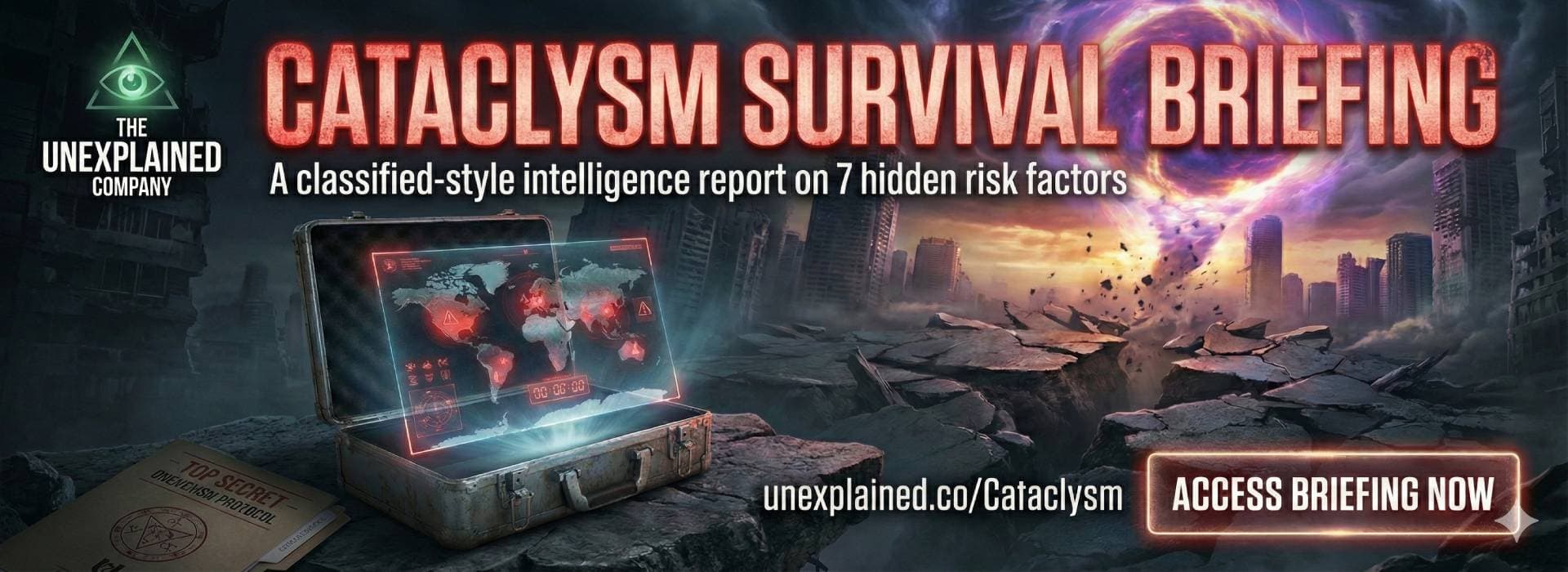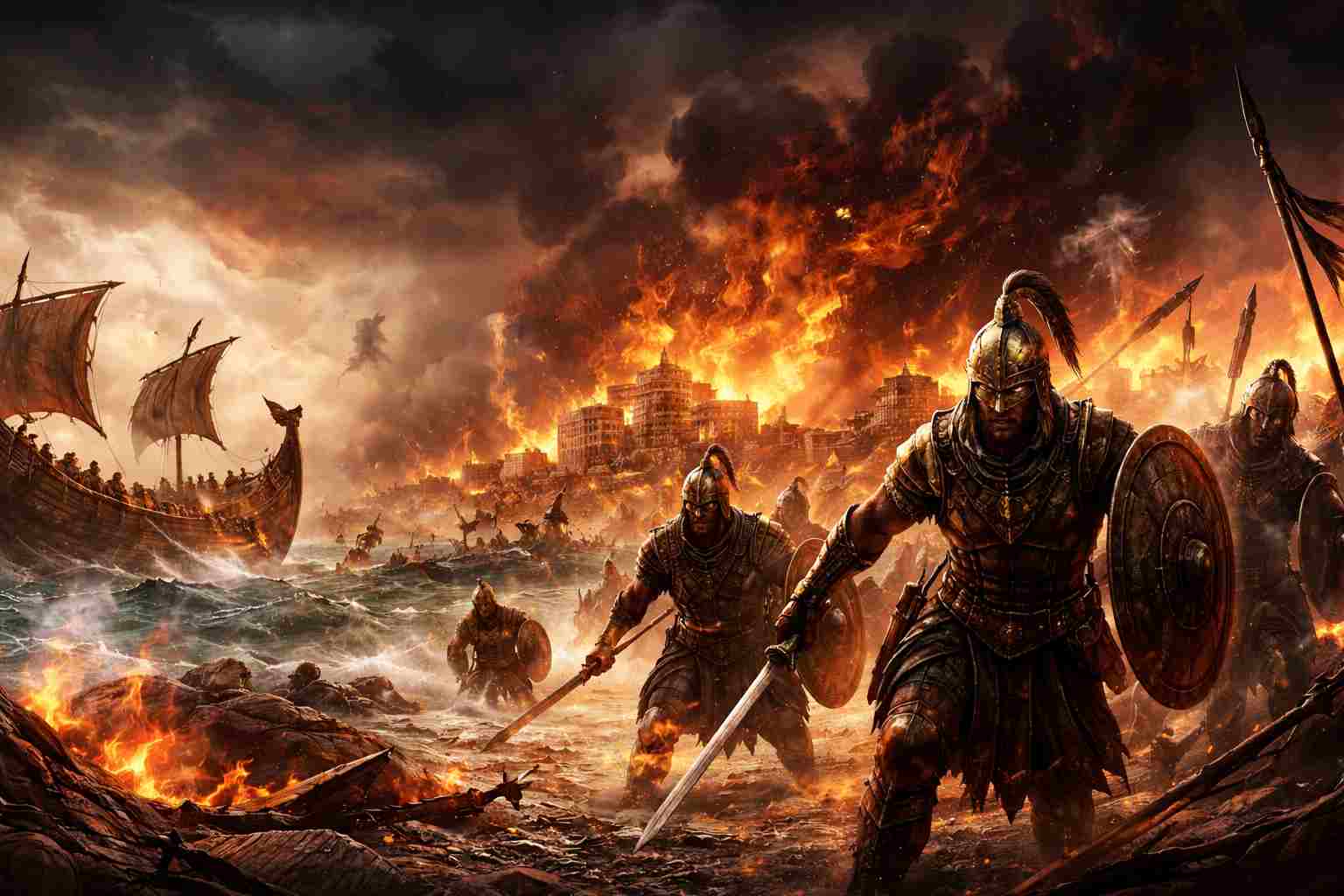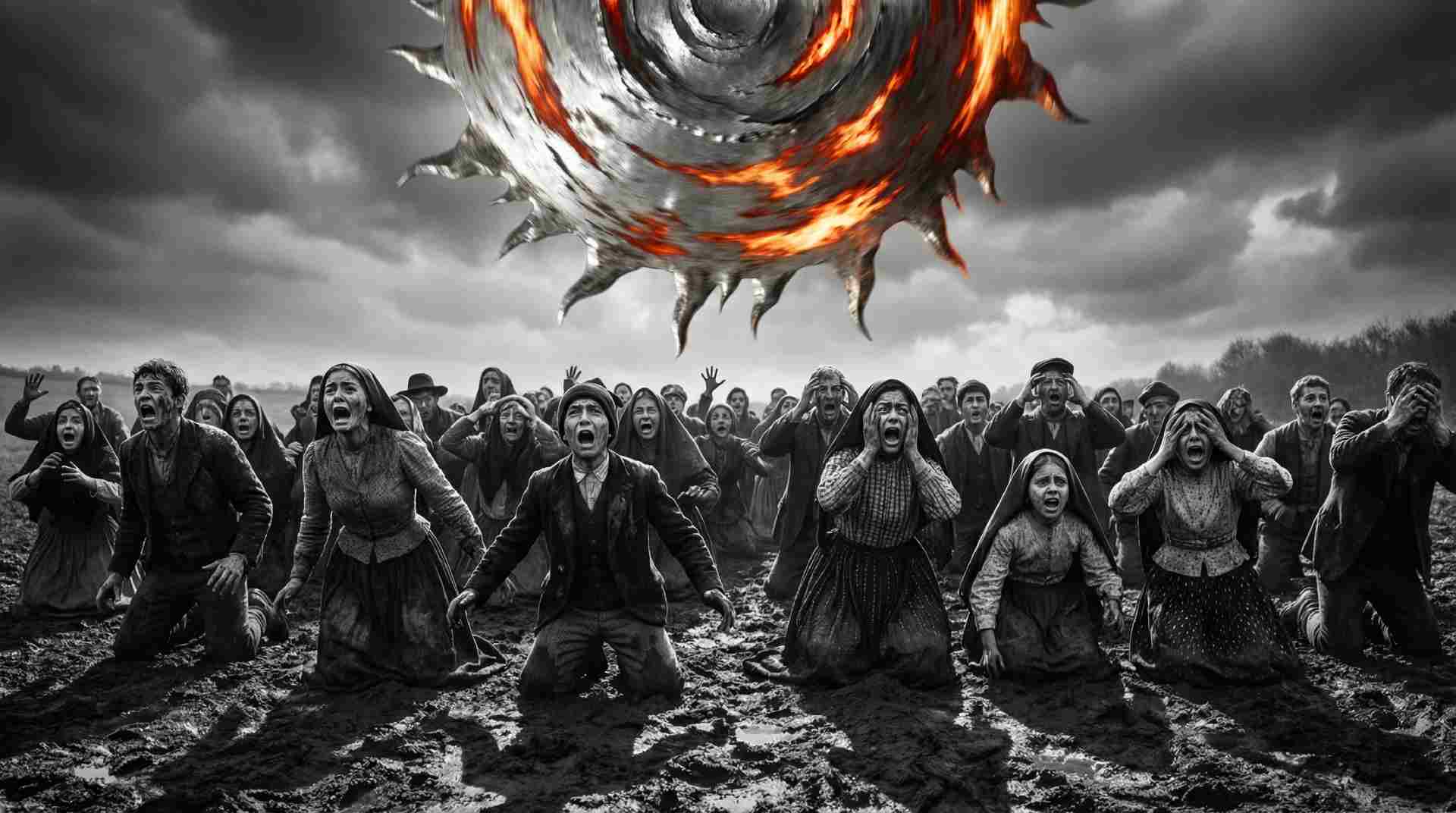For doomsday preppers, 2030 stands out as a critical year. Thomas Sowell’s scorn illustrates that collapse doesn’t strike suddenly; it creeps in like a slow, corrosive fog. When it arrives, we realize the ticking bomb has been beneath us for decades, not just years (Salon analysis).
Sowell, in his collected essays, identifies the roots of America’s collapse: moral retreat, unchecked entitlement, and cultural apathy towards accountability. Sound familiar? Symptoms appear in every empire before its decline, from Rome to dwindling Detroit. Ignore Hollywood disasters; the real threat isn’t a meteor; it’s our collective surrender to decay, as outlined by the extensive overview on American decline.
Structural Failure or Inevitable Turning Point?
The rhetoric may sound theatrical, but the data should alarm you: military overspending, trillion-dollar deficits, and a fragile international system resemble a house of cards. Paul Kennedy’s “The Rise and Fall of the Great Powers” explores how overextension—military, economic, or technological—signals a superpower’s decline. American hubris remains vulnerable to the traps that dismantled Rome and the USSR. Recent talk of geopolitical overreach underlines this, as America attempts to control global outcomes while its core strains (MIT Press Reader).
Collapse seems inevitable, perhaps because, in many ways, it is. This goes beyond market crashes or political missteps; it reflects how a culture underestimates the gradual decay of institutions. It accumulates unlearned lessons and ignored warnings. This echoes massive societal experiments, like those detailed in the forgotten architecture of Australia’s institutions and the hidden aftershocks of nuclear test fallout.
Moral Cowardice, Cultural Drift, and the Erosion of Character
Sowell rejects lazy abstractions. He attributes the crisis to a legacy of moral cowardice—weak leadership, degrading work ethics, and abandoning shared norms. This pattern appears in post-mortems of empires since the Bronze Age. Once a culture shifts from effort and delayed gratification to instant outrage and blame-shifting, the game is over. Studies on American decline (see automation and technosocial drift) remind us that every technological leap or crisis ultimately tests our cultural resilience. Pass the test or fade into obscurity.
History reveals a consistent pattern: what can be reversed today will become irreversible tomorrow, then “historic” the day after. As Sowell asserts, ignoring these lessons isn’t just tragic; it’s how civilizations erase themselves through poor decisions.
Declinism, China, and the New Great Power Rivalry
Skeptics mock the “declinists,” but scholars on Wikipedia argue that even if past predictions faltered, current facts are undeniable. Notably, China’s strategic emergence, outlined in this global threat assessment, raises real doubts about America’s status as the world leader. Economic indicators, military posture, and, most concerning, cultural influence all show concerning trends (Harvard report on social collapse).
While headlines call attention to external dangers, the rot has always been internal. Matthew Kroenig states, “Empires aren’t beaten from without until they’ve decayed from within.” This sentiment resonates through modern concerns about infrastructure collapse and existential risks.
Learning from Collapse: Is There Still Time?
Every story of ruin raises the same question: Can we reverse this trend, or is it too late? Sowell’s outlook is grim—by 2030, America’s main vulnerabilities will have shifted from hypothetical to stark reality. Nevertheless, these warnings carry value. The crumbling facade still conceals rooms worth saving, as every doomsday researcher knows.
For insight into this pattern—where society confronts the truth yet looks away—track the exploration of “awakening” moments at the intersection of history and consciousness, and how warnings echo through cryptic legends in Canada’s northern lore.
Prepared for a reality check? Or want to know where the next shockwave is coming from? Make Unexplained.co your bunker—because history teaches that most people aren’t ready until it’s too late.





